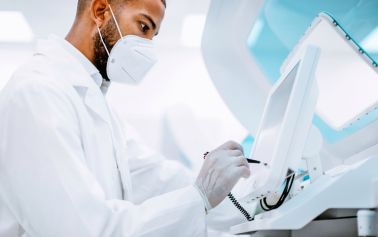
Source: sanjeri / Getty
Drugmaker Pfizer said on July 8, that it is beginning to see a decline in immunity rates of protection against the COVID-19 virus with their vaccine. Now the company is currently ramping up efforts to develop a third dose with the hopes of helping to prevent people from contracting more dangerous variants of the virus.
Pfizer added that it would share the gathered data about the possible third dose of vaccine with the U.S. Food and Drug Administration for consideration, adding that it hopes to have the booster dose ready come August.
However, the European Medicine Agency and the FDA issued statements stating it would not be necessary for Americans to take the third shot quite yet.
“Americans who have been fully vaccinated do not need a booster shot at this time,” the statement read.
The World Health Organization also issued a similar statement to CNN:
“We don’t know whether booster vaccines will be needed to maintain protection against COVID-19 until additional data is collected,” adding, “limited data available on how long the protection from current doses lasts and whether an additional booster dose would be beneficial and for whom.”
According to research conducting by the organization’s partnering company BioNTech. The evidence suggested that people’s immunity to the virus began to “wane off” after the required two doses. Pfizer chief Scientific Officer Mikael Dolsten said that the case particularly holds to be true based on evidence that they found with their Phase 3 study in Israel. The data suggested that there was a sharp dip in COVID-19 immunity in people who had been vaccinated between January or February. The country’s health ministry reported that that country’s efficacy rate against the virus fell by 64%. While Pfizer says their vaccine has proven to be extremely effective in preventing the highly contagious Delta variant, Dolsten added that after 6 months, the vaccine could potentially wear off.
“While protection against severe disease remained high across the full six months, a decline in efficacy against symptomatic disease over time and the continued emergence of variants are expected. Based on the totality of the data they have to date, Pfizer and BioNTech believe that a third dose may be beneficial within 6 to 12 months following the second dose to maintain highest levels of protection.”
While the Delta and newly found Lambd variant of the virus are transmissible, officials say that those who are fully vaccinated could potentially have a lower risk of infection, Reuters reported.


